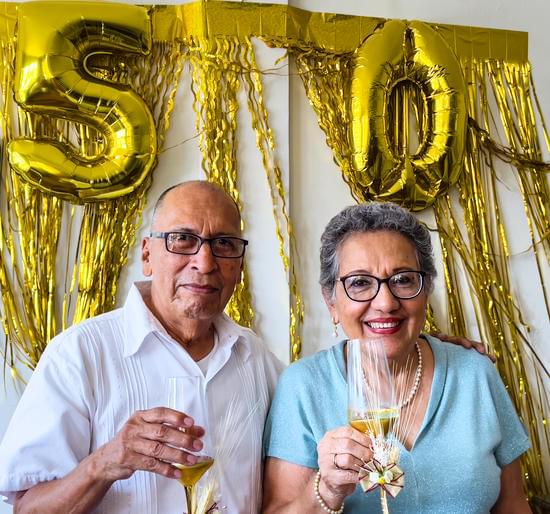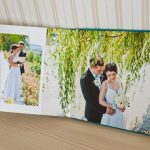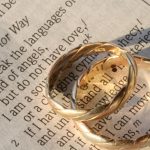Getting married in New York State is a significant milestone for many couples, and the role of the wedding officiant is crucial in ensuring that the ceremony is legally valid and meaningful. But can anyone officiate a wedding in New York State? Understanding the legal requirements and qualifications for officiating a wedding in this state is essential for those planning to tie the knot or become an authorized wedding officiant.
In this article, we will explore the legal requirements for officiating a wedding in New York State, who qualifies to officiate a wedding, how to become an authorized wedding officiant, the different types of authorized wedding officiants, and the role and responsibilities of a wedding officiant in New York State. We will also provide tips for choosing the right wedding officiant for your New York State wedding, ensuring that you have a legally valid and meaningful ceremony.
Whether you are considering becoming an ordained minister to perform weddings or are planning your own New York State nuptials, understanding the ins and outs of wedding officiation in this state is essential. With this knowledge, you can ensure that your special day is not only memorable but also legally recognized. So let’s delve into the significance of officiating a wedding in New York State and what it takes to become an authorized wedding officiant.
Understanding the Legal Requirements for Officiating a Wedding in New York State
In order to officiate a wedding in New York State, there are specific legal requirements that must be met. Understanding these requirements is essential for ensuring that the wedding ceremony is legally valid and recognized by the state. Whether you are considering having a friend or family member officiate your wedding, or you are interested in becoming an authorized wedding officiant yourself, it is important to be aware of the legal guidelines.
Here are some key legal requirements for officiating a wedding in New York State:
- Authority to Officiate: Only individuals who are authorized by the state of New York can legally perform marriage ceremonies.
- Ordained Minister or Religious Officiant: A religious leader who has been duly ordained or appointed by a religious organization and maintains a regular congregation can officiate weddings in New York State.
- Civil Officiants: Judges, justices of the peace, mayors, and certain other public officials are also authorized to officiate weddings in New York State.
It’s important to note that not just anyone can decide to officiate a wedding in New York State. Without proper authorization, the marriage ceremony would not be legally recognized. Therefore, it is crucial to ensure that your chosen wedding officiant meets the necessary legal requirements.
Becoming familiar with these legal requirements can help couples and prospective officiants navigate the process of selecting someone to preside over their wedding ceremony, as well as understand the role and responsibilities of an authorized wedding officiant in New York State. By following these guidelines, couples can have peace of mind knowing that their marriage will be legally valid and meaningful under state law.
Who Qualifies to Officiate a Wedding in New York State
In New York State, not just anyone can officiate a wedding. There are specific qualifications that must be met in order to legally perform a marriage ceremony. Understanding who qualifies to officiate a wedding in New York State is crucial for couples who want to ensure that their marriage is legally valid.
Qualifications for Officiating a Wedding
According to New York State law, there are certain individuals who are authorized to officiate weddings. These include ordained ministers of the gospel, clergy members of any religion, and leaders of societies for ethical culture. In addition, judges and justices of the peace are also able to perform marriage ceremonies.
Out-of-State Officiants
It’s important to note that individuals from out-of-state who are authorized to solemnize marriages in their own state may also officiate weddings in New York State. However, they must first apply for permission from the New York Secretary of State before performing any ceremonies.
Non-Religious Officiants
For those who do not practice any particular religion, becoming ordained as a minister online or through an organization can also qualify them to officiate weddings in New York State. It’s essential for these individuals to research and understand the legal requirements and ensure that they are authorized by the state before performing any ceremonies.
Ultimately, it’s crucial for couples getting married in New York State to carefully consider who will officiate their wedding and ensure that the individual meets all necessary qualifications to perform a legal marriage ceremony in the state.
How to Become an Authorized Wedding Officiant in New York State
Becoming an authorized wedding officiant in New York State is a process that involves understanding and fulfilling the legal requirements set forth by the state. In order to officiate a wedding in New York State, individuals must be officially recognized and authorized by the state government. This ensures that the marriage ceremony is legally valid and binding.
One of the main legal requirements for officiating a wedding in New York State is obtaining a marriage officiant registration from the city or town clerk’s office where the marriage ceremony will take place. This registration grants individuals the legal authority to solemnize marriages within that specific jurisdiction.
It’s important to note that each city and town may have slightly different processes and requirements for obtaining this registration, so it’s essential to check with the local clerk’s office for specific instructions.
In addition to obtaining a marriage officiant registration, individuals must also meet other eligibility criteria set by the state. Typically, individuals who are ordained or licensed ministers, priests, rabbis, or pastors can officiate weddings in New York State.
However, there are also provisions for individuals who are not affiliated with any religious organization to become temporary officiants for a specific ceremony through a one-time permission from the state. It’s important to carefully review and understand these qualifications before seeking authorization to officiate a wedding in New York State.
| Authorized Officiant Types | Qualifications |
|---|---|
| Ordained or licensed ministers | Must be officially ordained or licensed by a religious organization |
| Judges | Can solemnize marriages as part of their official duties |
| Mayors | Have authorization to perform marriage ceremonies within their jurisdiction |
Different Types of Authorized Wedding Officiants in New York State
In New York State, there are different types of authorized wedding officiants who can legally perform a marriage ceremony. These authorized officiants play a crucial role in ensuring that a wedding is not only meaningful but also legally valid. Understanding the different types of authorized wedding officiants can help couples make an informed decision when choosing the right person to officiate their wedding.
One type of authorized wedding officiant in New York State is a clergy member or minister who is officially recognized by their religious organization. This can include priests, rabbis, imams, and other religious leaders who have been ordained through their respective religious institutions. Another type of authorized wedding officiant is a judge or justice of the peace who is licensed to perform marriages within the state.
Additionally, New York State allows for temporary officiants to legally perform marriage ceremonies. This includes individuals who have been granted a one-time authorization to officiate a specific wedding ceremony. It’s important to note that online-ordained ministers are not allowed to perform marriages in New York State, as the state does not recognize them as authorized wedding officiants.
Ultimately, understanding the different types of authorized wedding officiants in New York State can help couples ensure that their chosen officiant is legally qualified to solemnize their marriage and provide them with the meaningful ceremony they desire.
| Authorized Wedding Officiants | Licensing/Authorization Requirements |
|---|---|
| Clergy members or ministers | Official recognition by religious organization |
| Judge or justice of the peace | State licensure to perform marriages |
| Temporary Officiants | One-time authorization for specific ceremony |
The Role and Responsibilities of a Wedding Officiant in New York State
A wedding officiant in New York State plays a crucial role in ensuring that the marriage ceremony is legally valid and meaningful. This individual is responsible for solemnizing the marriage, guiding the couple through their vows, and witnessing the signing of the marriage license. Additionally, the officiant must ensure that the ceremony complies with all legal requirements set forth by the state of New York.
The role and responsibilities of a wedding officiant in New York State are significant, as they are entrusted with overseeing one of the most important moments in a couple’s life. They must conduct themselves with professionalism and respect to create a memorable and heartfelt ceremony for the couple and their guests. Below are some key responsibilities of a wedding officiant:
Responsibilities of a Wedding Officiant in New York State:
- Perform the marriage ceremony according to the wishes of the couple
- Ensure all legal requirements are met during the ceremony
- Guide the couple through their vows and exchange of rings
- Sign the marriage license as an official witness
In addition to these core responsibilities, a wedding officiant in New York State must also be prepared to offer guidance and support to the couple throughout the planning process. They should be well-versed in creating personalized ceremonies that reflect the beliefs and values of the couple, as well as any cultural or religious traditions they may wish to incorporate.
Overall, a wedding officiant holds a position of great importance in ensuring that couples have a meaningful and legally recognized marriage ceremony in New York State.
Tips for Choosing the Right Wedding Officiant for Your New York State Wedding
Choosing the right wedding officiant for your New York State wedding is a crucial decision that can greatly impact the overall feel and legality of your ceremony. With so many options available, it’s essential to consider certain factors before selecting an officiant who will fulfill your unique needs and wishes for your special day.
Consider Personal Connection
One of the most important factors to consider when choosing a wedding officiant is the personal connection you have with them. Whether you opt for a religious leader, a friend ordained online, or a professional celebrant, it’s important that you feel comfortable and connected with the person who will be solemnizing your marriage.
Evaluate Their Style and Approach
Each wedding officiant has their own style and approach to conducting ceremonies. Some may focus on traditional religious elements, while others may take a more modern or inclusive approach. Consider what kind of ceremony you envision and look for an officiant whose style aligns with your vision.
Review Their Experience and Credentials
When choosing a wedding officiant in New York State, it’s crucial to review their experience and credentials. Be sure to inquire about their licensing or ordination status, as well as any specialized training they may have. Additionally, ask for references or examples of previous ceremonies they have facilitated to ensure they have the expertise needed to make your ceremony memorable and legally valid.
By taking these tips into consideration when choosing a wedding officiant for your New York State wedding, you can ensure that you find the perfect match to help you create a meaningful and legally valid ceremony that reflects your unique love story.
Conclusion
In conclusion, ensuring a legally valid and meaningful wedding ceremony in New York State is essential for couples who want their marriage to be recognized and upheld by the law. Understanding the legal requirements for officiating a wedding in the state is crucial, as it can impact the validity of the marriage. It is important to note that not just anyone can officiate a wedding in New York State, as there are specific qualifications and processes that must be followed.
To qualify as an authorized wedding officiant in New York State, individuals must adhere to the state’s laws and regulations. This may include obtaining authorization through religious organizations or applying for a temporary officiant license from a city clerk. Understanding these requirements and following the necessary steps can ensure that the wedding ceremony is legally binding.
Ultimately, choosing the right wedding officiant for a New York State wedding is a significant decision for couples. It is important to consider not only the legal aspects but also the personal connection and meaningfulness that an officiant can bring to the ceremony. By carefully selecting an authorized wedding officiant who meets all legal requirements and aligns with the couple’s values, they can ensure a memorable and legally valid marriage ceremony in New York State.
Frequently Asked Questions
Does NYS Recognize Online Ordained Ministers?
Yes, New York State does recognize online ordained ministers. However, there are certain additional requirements and considerations for them to legally officiate a marriage within the state.
What Are the Marriage Laws in New York State?
In New York State, the marriage laws require couples to obtain a marriage license from any town or city clerk before getting married. The marriage license is valid for 60 days and there is a mandatory 24-hour waiting period before the marriage ceremony can take place.
Is the Universal Life Church Recognized in New York State?
The Universal Life Church is recognized in New York State, but ministers ordained through this organization may need to fulfill additional requirements such as registering with the county clerk before they can legally perform marriages. It’s important for ULC ministers to familiarize themselves with the specific regulations in New York State.

I have been involved in marriages for over 20 years helping couples and singles understand more about them.





